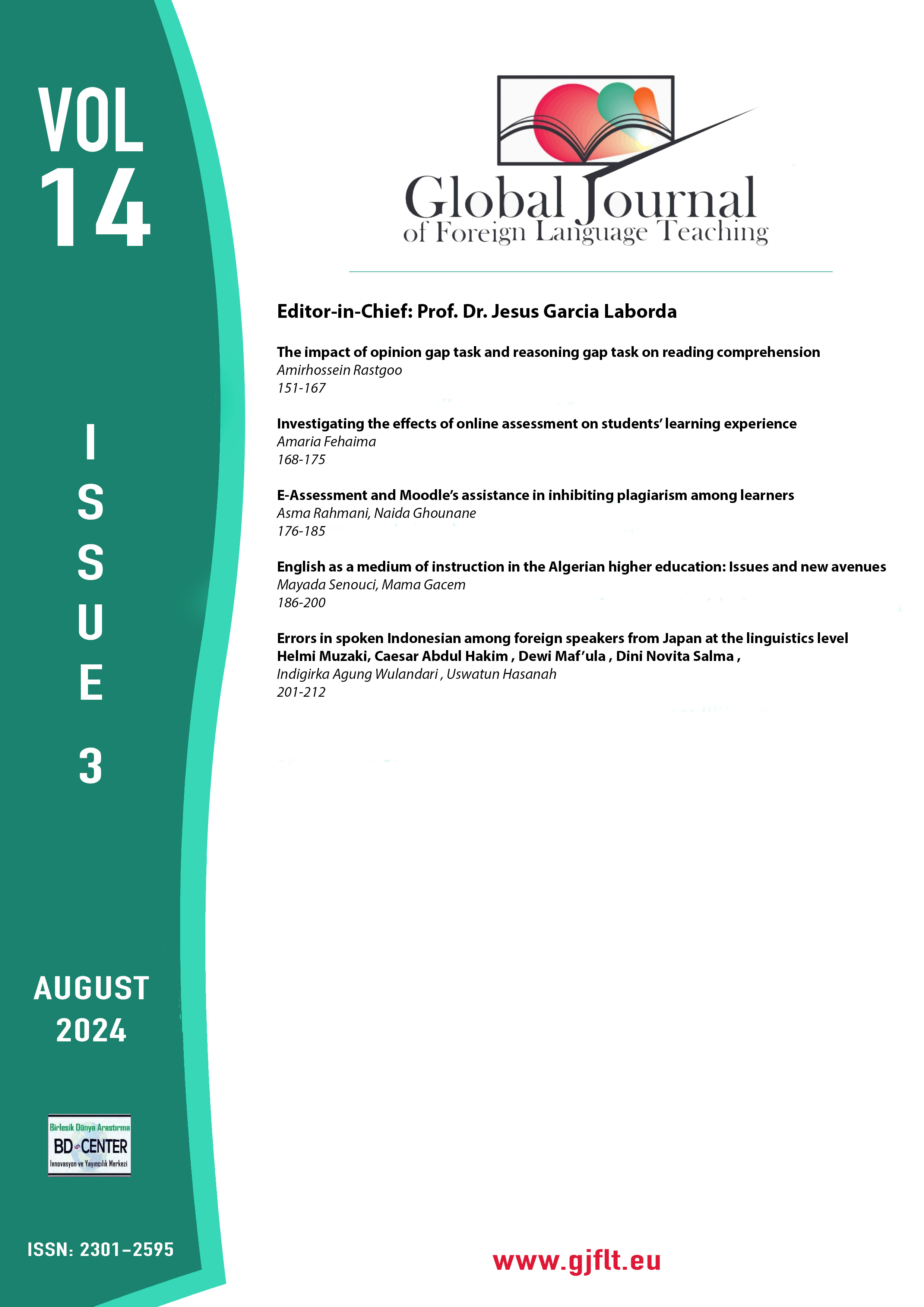The impact of opinion gap task and reasoning gap task on reading comprehension
Main Article Content
Abstract
Regarding the crucial role of applying task-based instruction in EFL classes, this study tried to investigate the impact of two tasks, the opinion gap task and the reasoning gap task, on Iranian intermediate EFL learners' reading comprehension skills. The main population including three groups was selected after optional practical training administration, and determined as intermediate. First, a pre-test was given to three groups. After Task-Based Instruction implementation using two tasks, opinion gap and reasoning gap tasks, a post-test was given to identify the positive or negative impact of the treatment on reading comprehension. After the statistical analysis, from one-way ANOVA, the results of the post-test of the two experimental groups proved that applying task-based instruction had a more positive effect on the intermediate EFL learners' reading comprehension skills in comparison to the traditional teaching method which was used for the control group. According to the data analysis, despite the existing positive impact of the aforementioned tasks on reading comprehension skills, the pairwise comparison of the two experimental groups indicated that the opinion gap task and reasoning gap task had approximately an equal influence on learners' reading comprehension skills.
Keywords: Cognitive tasks; EFL learners; opinion gap task; reading comprehension; reasoning gap task
Downloads
Article Details

This work is licensed under a Creative Commons Attribution-NonCommercial-NoDerivatives 4.0 International License.
Authors who publish with this journal agree to the following terms:- Authors retain copyright and grant the journal right of first publication with the work simultaneously licensed under a Creative Commons Attribution License that allows others to share the work with an acknowledgement of the work's authorship and initial publication in this journal.
- Authors are able to enter into separate, additional contractual arrangements for the non-exclusive distribution of the journal's published version of the work (e.g., post it to an institutional repository or publish it in a book), with an acknowledgement of its initial publication in this journal.
- Authors are permitted and encouraged to post their work online (e.g., in institutional repositories or on their website) prior to and during the submission process, as it can lead to productive exchanges, as well as earlier and greater citation of published work (SeeThe Effect of Open Access).
